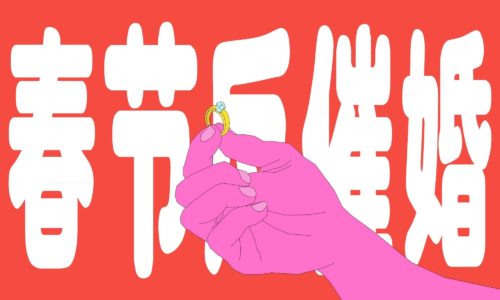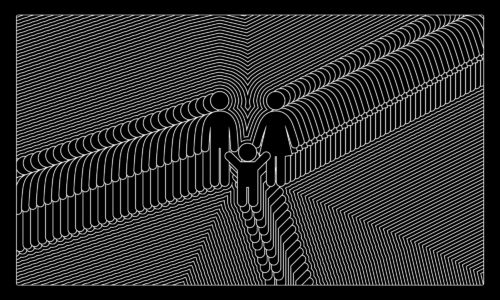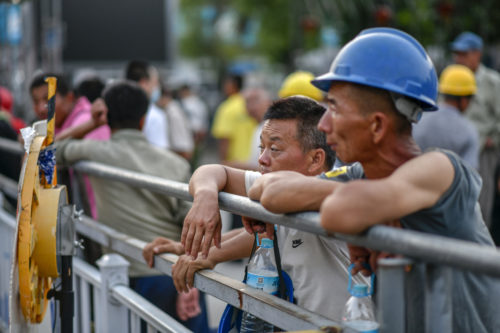Could urban single women be the solution to China’s surplus of rural bachelors?
A government researcher says single women in cities should pair up with bachelors from the countryside, despite vast social, economic, and educational backgrounds. Urban women online aren’t having any of it.

Just as street vendors showed up in big numbers selling rose bouquets and heart-shaped candies, in time for Valentine’s Day 2021, an unromantic problem regarding the current state of China’s dating scene came back into the news: The huge surplus of single men, especially in rural areas.
The solution, according to Wú Xiūmíng 吴修明, a senior researcher at a government-funded think tank in Shanxi Province, is to “export” rural bachelors to urban areas where single women are desperate to find a life partner.
“To solve this problem properly in the long term, we need to close the urban-rural divide and disparities between different regions,” Wu said in a recent interview (in Chinese), which has attracted a great deal of criticism on Chinese social media. Wu also advised local governments across the country to roll out measures to make rural bachelors more attractive to urban single women, such as offering them special skills training for employment in major cities, and to expand their matchmaking services, including by organizing rural-urban speed-dating events.
Wu’s suggestions were in direct response to an “alarming” phenomenon featured in an article (in Chinese) published by state-owned Xinhua News Agency on February 14 titled “Older men in the countryside are struggling to find someone to marry,” which focuses on the rural bachelors in areas such as Shanxi Province and Henan Province. As the article noted, many of them are not single by choice, but because they cannot afford betrothal gifts, also known as caili (彩礼 cǎilǐ) in Chinese, which typically include a set of pricey items such as a house and a car.
“Grooms are usually expected to spend 1 million yuan ($150,000) on pre-wedding presents in my area. Getting married is insanely costly,” said a villager interviewed by Xinhua, who lamented that the growing financial burden on the groom’s family had caused the rural dating marketplace to work largely in favor of women. A government official in Hunan Province told Xinhua that it was “obvious that the bachelor problem has become increasingly serious.”
Under China’s decades-long birth control restrictions, millions of families were only permitted to have one child and a considerable number of them obtained abortions because the fetuses were female, reflecting traditional preferences for sons over daughters in Chinese culture. As a result, the country now has a major gender imbalance, particularly among people who are now of child-bearing age. Predictions say that by 2020, China will have 30 million bachelors, sometimes called guanggun (光棍 guānggùn), or “bare branches.”
In the eyes of the central government, these unwed men, who are typically impoverished and uneducated, constitute an unstable, dangerous factor in society because of the financial, social, and sexual frustration they suffer from. To address the issue, the Chinese government has instituted a variety of policies aimed at taking the financial pressure off bachelors, such as capping betrothal gifts at 20,000 yuan ($3,096). Officials have also employed multiple tactics to pressure women into coupling, including coining and propagating the infamous sexist term leftover women, which is used to describe a hypereducated, ambitious female over the age of 27 who is still single.
Wu’s proposal, which is essentially asking urban women to compromise on their expectations and marry down before their marital prospects — and their eggs — dry up, seems to capitalize on the same kind of unsubstantiated panic built around single women for years by the government. And for that reason, much of the online response to Wu’s suggestion has been outrage.
“It’s absolutely nuts that he sees the process of real humans finding true love as some sort of animal breeding experiment,” a Weibo user wrote (in Chinese), while another one said (in Chinese), “I implore Wu’s daughter to set an example first.”
Naturally, a lot of the anger came from urban, professional women. “I can’t believe it’s 2021 and there are people out there who think that the only path to personal fulfillment is at the end of an aisle,” a woman commented (in Chinese). Another woman proudly wrote (in Chinese), “I am single and I’m loving it. I don’t need a man to be happy.”






